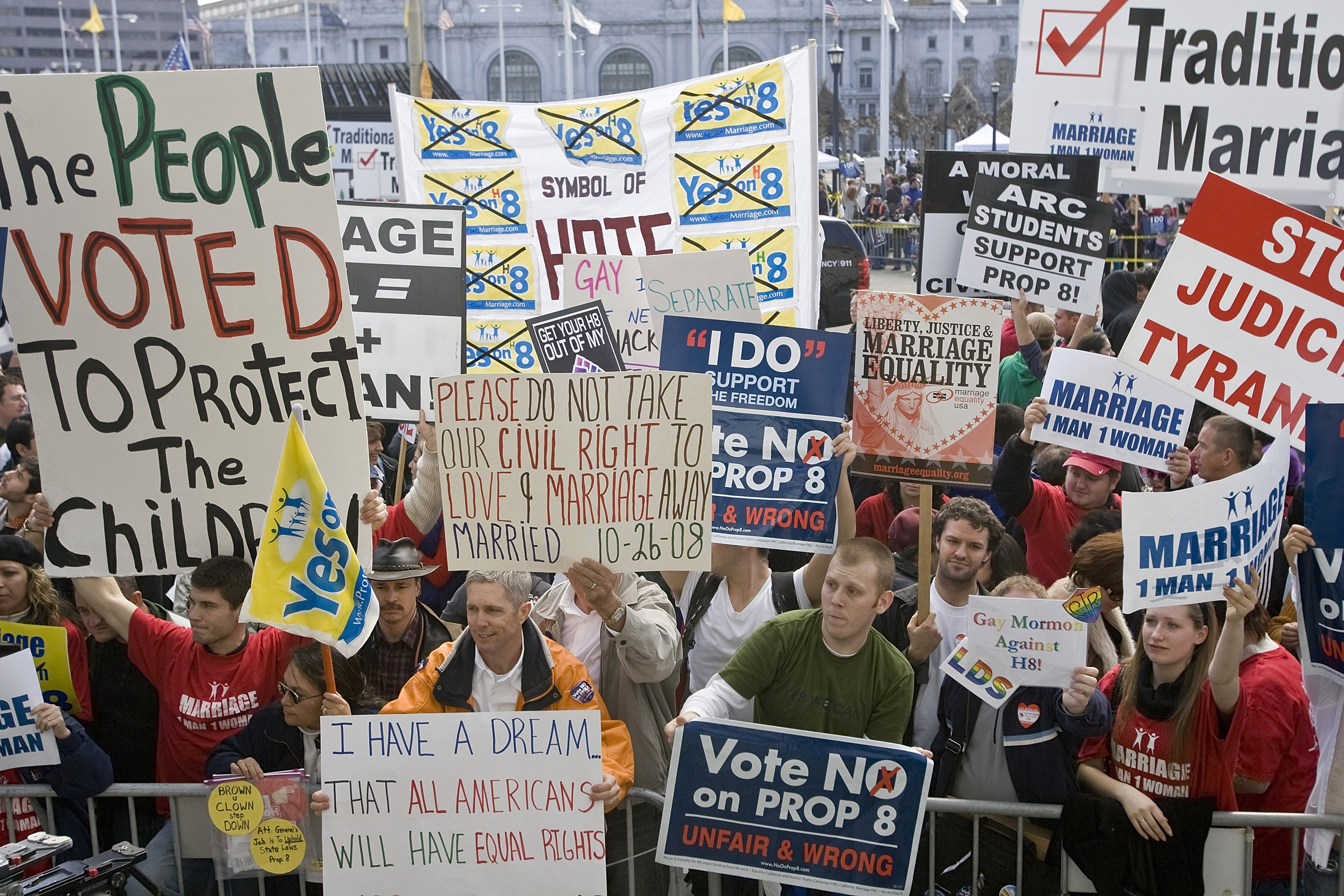
Update Wednesday: We're live blogging today's decisions here.
The U.S. Supreme Court did not release rulings on either Proposition 8 or the Defense of Marriage Act today. The court said it will convene again tomorrow at 7 a.m. for the last time this term to issue its remaining decisions. Presumably, those will include rulings on the same-sex marriage cases.
While you wait, here are some possible outcomes regarding the Prop. 8 case, in which the issue before the court is whether California's 2008 voter-approved same-sex marriage ban is as unconstitutional as two lower courts said it is ....
- The U.S. Supreme Court could affirm the 9th Circuit decision that invalidated Prop. 8's constitutionality. Such a ruling would legalize same-sex marriage in California. It could potentially go beyond California and legalize same-sex marriage nationwide.
- The court could dismiss the case by ruling that the petition for review should never have been granted. This would leave the 9th Circuit Court's decision that Prop. 8 is unconstitutional as the final binding decision. This ruling, however, was narrowly defined and would likely pertain solely to California.
- The court could hold that the Prop. 8 backers lack standing under federal law to appeal. This would vacate the 9th Circuit's decision, leaving U.S. District Court Judge Vaughn Walker's ruling that Prop. 8 is unconstitutional as final, making same-sex marriage legal in California. However, this would leave open the possibility that Prop. 8 supporters could challenge whether that ruling applies statewide.
- The court could reverse the 9th Circuit, upholding Prop. 8 as valid. This would mean that same-sex marriage would continue to be illegal in California, unless another state proposition overturns Prop. 8.
Many legal analysts do not think the court is likely to create a broad right to same-sex marriage in its ruling. “It's very rare for the court to invalidate the laws of two-thirds or three-quarters of the states,” UC Davis law professor and SCOTUSblog analyst Vik Amar told KQED's Scott Shafer earlier this month. He noted that when bans on interracial marriage were struck down in 1967, only 16 states had such laws -- compared with 35 that now ban gay marriage. And as Shafer wrote, "at oral arguments in March, there seemed to be little appetite – even among the most liberal justices -- for a momentous decision in support of gay marriage."